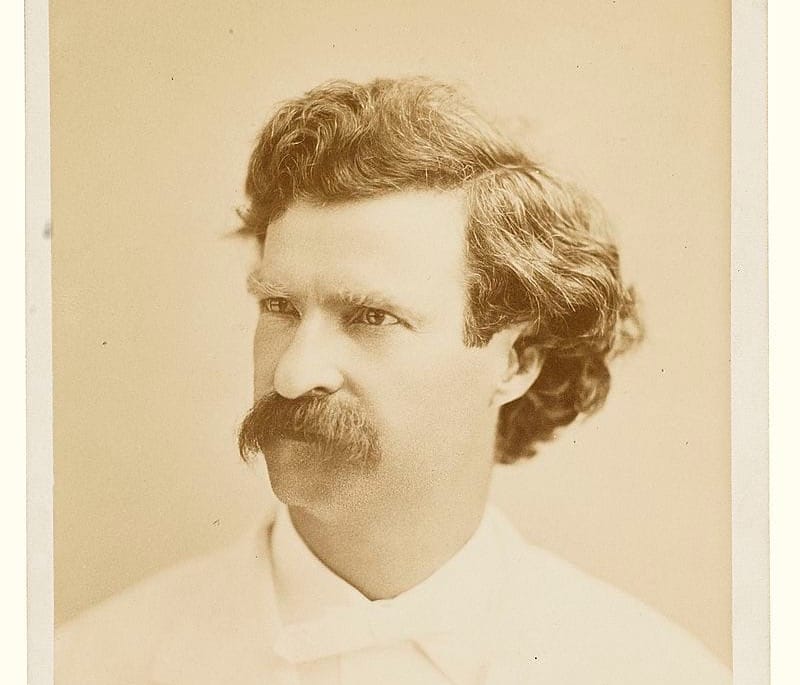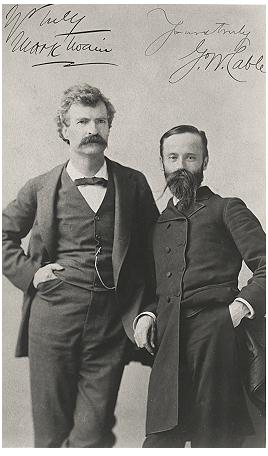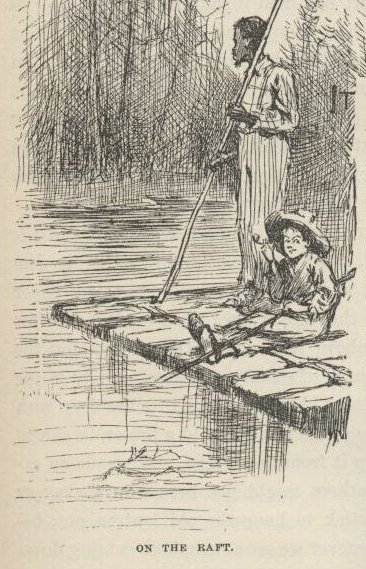Mark Twain and George Washington Cable

Twain and Cable became friends on a promotional book tour together in November of 1884 that reached 80 cities by February of 1885 when Adventures of Huckleberry Finn was published. Twain had invited Cable, famous for Old Creole Days (1879) and The Grandissimes (1880), to join him and, for obvious reasons, they stayed in the northern states and never went south of St. Louis.

Those reasons became obvious after the Christmas break, by which time Cable’s controversial essay The Freedman’s Case in Equity had been published and the Huck-Jim relationship had become the most successful part of Twain’s presentation. Both writers attacked racism but in different ways, and many see Twain’s novel as simply evasive and racist (I'm not one of them). But at the time it was worse for Cable: after he published a follow-up The Silent South in April, he and his family had to flee New Orleans to live in Massachusetts.
While The Silent South has faded from sight, the controversy around Huckleberry Finn was just beginning and it is now Black Americans who have led the way in calling for it to be banned from classrooms -- Satire or evasion?: Black perspectives on Huckleberry Finn (1992) is an excellent overview. Many Jewish English professors, journalists and high school teachers have defended the novel, but the two groups have talked at cross purposes. For many Jewish Americans, we must never forget history, because there is a moral opportunity here – thinking of the Holocaust and Night – but for many Black Americans we should be silent about this because of the "N" word, because Slavery was their Holocaust and because Twain’s satire is misunderstood and mis-applied, often to the embarrassment of Black high school students. It is not a question of one group being right and one being wrong. Both are right. But in American classrooms today, teaching Huckleberry Finn (and, more recently, To Kill a Mockingbird) stirs up ghosts and demons, and I can think of no equivalent book for Jews.

